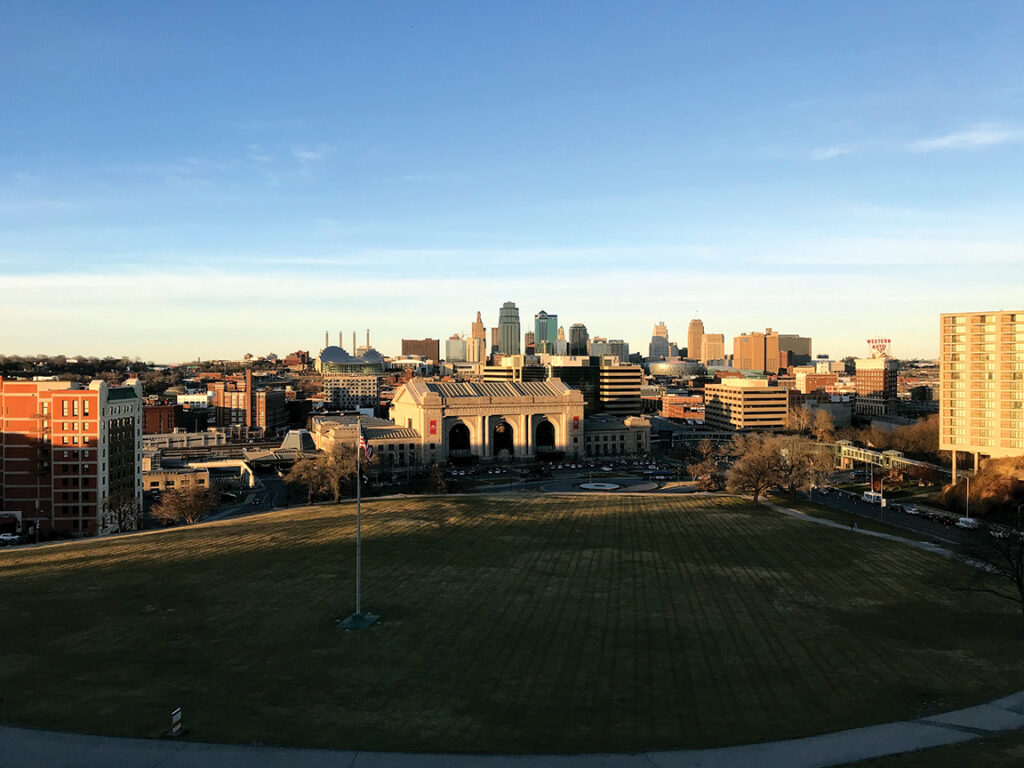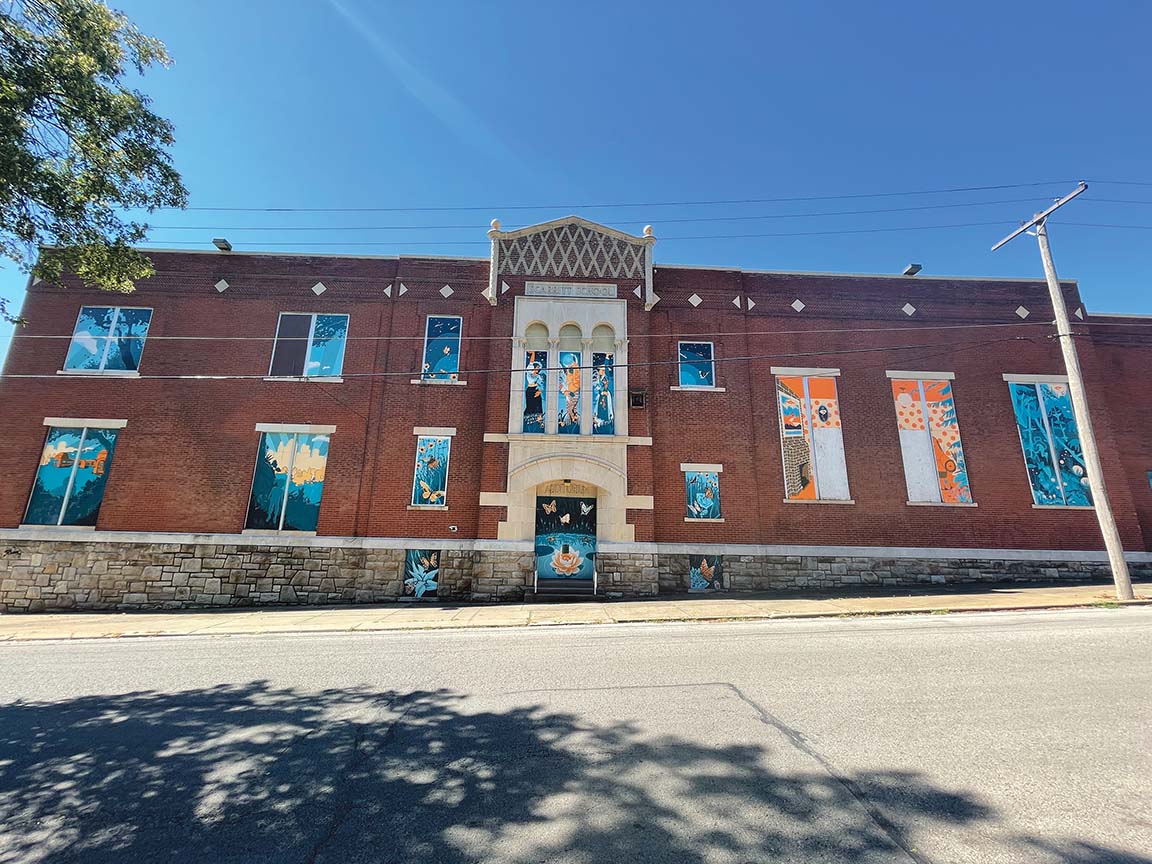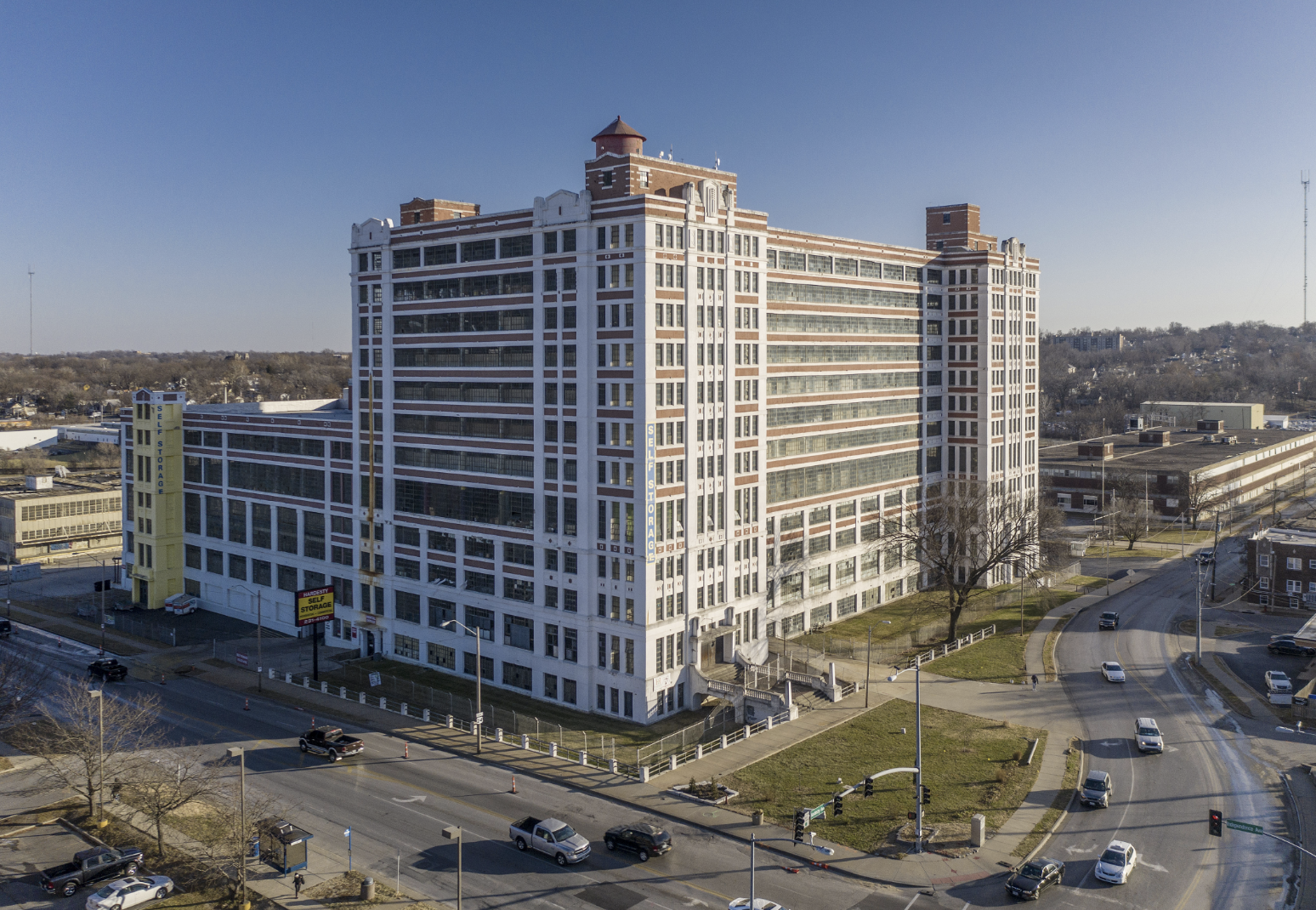
Abby Hoover
Managing Editor
The City of Kansas City, Mo., has begun discussion on its next annual budget. The preliminary budget proposal was presented to City Council on Thursday, Feb. 11.
Residents will have three opportunities to give feedback on the $1.7 billion budget proposal, either virtually and in person, on Saturday, Feb. 20 from 9 a.m. to noon (virtual); Saturday, Feb. 27 from 9 a.m. to noon at Municipal Arena, 301 W. 13th St.; and Tuesday, March 2 from 10 a.m. to 1 p.m. (virtual).
On Wednesday, Feb. 10, Kansas City Mayor Quinton Lucas delivered his second State of the City address at Winnetonka High School. He posed three questions to Kansas Citians attending virtually.
“How do we learn from this past year about health, economy, and our budget to move more responsibly into the future?” Lucas asked. “Second, as we work to rebuild economically, how do we ensure equitable and sustainable economic development that will improve Kansas City for the next generation? And then third, and always important, how do we keep Kansas Citians safe, implement transformative, long-term violence prevention strategies, and build community trust?”
Like many cities, the economic slowdown caused by the COVID-19 pandemic has resulted in significant revenue reductions for Kansas City, Lucas said.
“Such a challenging year has left the City to make difficult decisions as we plan for the next fiscal year,” he added. “We have a leaner budget, but we also have a better plan to remove snow off the roads more quickly; to fill more potholes — 10,000 of which we filled last year; to avoid utility companies tearing up newly-repaved streets; to ensure buses remain fare-free; and to efficiently deliver basic city services to all residents.”
The City plans to increase by over $10 million its investment in road resurfacing and repavement to avoid the all-too-familiar concerns in Kansas City with crumbling roads, bridges, and infrastructure. The Capital Improvements Plan includes $232 million in traditional capital funding across several sources. The plan adds $100 million over the next five years to GO KC Plan, with $20 million a year for street resurfacing. It maintains $19.6 million for street preservation, of which $500,000 will be dedicated to boulevards and $500,000 to Complete Streets development. It adds the Buck O’Neil Bridge replacement and the construction of the Northland Sports Complex.
No City employees will be laid off due to budgetary concerns, including Public Works staff, Parks and Recreation staff, firefighters, EMS, or officers at the Kansas City Police Department (KCPD).
“Every day, 7,000 people go to work for this great city and we will not leave them behind, even at this challenging time,” Lucas said. “Instead we will right-size budgets in all our departments, eliminating wasteful spending, leaving most currently vacant positions unfilled.”
Despite hefty budget cuts, city services will not suffer, he reassured residents. Police and fire departments, 911 call responders, snowplows, and public works will continue to maintain and improve City services.
The budget strategy includes cutting City travel and special events budgets, removing currently unfilled positions, continuing the City’s hiring freeze, increasing fees for street degradation by utilities, incentivizing early retirement and more.
The City will pursue a unified board for economic development review, which will combine the existing economic incentive boards, and as the City seeks to grow equitably, Lucas said this will streamline and simplify the way the City participates in development projects.
Lucas said the City will continue to fight violent crime through a multifaceted approach, expanding youth mentorship and mental health programs, recruiting law enforcement reflective of the community, decriminalizing poverty, and preventing crime before it starts.
Despite persistent calls to defund the police department and reallocate its budget to alternative community assistance services, Lucas said reducing the department’s budget is a financial decision, not a political one.
“As a councilman and mayor, I have voted to increase the police budget each year,” Lucas said. “We will continue our important conversations on the future of policing and safety in Kansas City, but the choices we discuss tonight and roll out tomorrow are based on budget facts and realities — not criminal justice debates.”
Lucas said this budget sets a responsible balance on necessary adjustments for fiscal solvency and the City’s need to ensure callers are not placed on hold when they call 911.
“Despite our positive changes and plans, we confront the reality of a revenue shortfall of more than $70 million as compared to last year’s budget,” Lucas said. “The budget to be introduced moves the $70 million forecast shortfall down to only $15 million.”
The submitted budget projects governmental activities revenues to decrease $42.5 million, driven primarily by the sustained economic impact of COVID-19 especially in Earnings Taxes, Convention & Tourism Taxes, Sales Taxes and Service Charges, according to the proposal.
The proposed budget includes cost saving measures such as transitioning waste removal and leaf and brush collection services in house with an estimated savings of $500,000; adding two IRS Audit Analysts with an estimated generation of $1.2 million of new revenue; refinancing various General Fund debt for $1.8 million in savings, and KC Live debt, saving $8.8 million.
The City anticipates revenue from the sale of unused or underutilized city property, both real estate and underutilized vehicles and equipment, conservatively estimated at $1.3 million in new revenue. One of these is closing Hale Arena for an estimated savings of $1.7 million.
It reduces certain contracts with outside vendors, including a jail contract, for a savings of $1.5 million; and at shuttered conventions, saving $500,000 for contract security and $964,000 in event support.
Additional savings and revenue opportunities are being explored, like converting streetlights to more energy efficient LED lights, consolidating underutilized office space, potential healthcare cost reductions while maintaining current plan coverage benefits available to employees, and reviewing the collection process to obtain greater collection rates for departments’ accounts receivable.
Earnings Taxes, the largest single revenue source supporting governmental activities, is projected to decrease by $22.9 million below the current adopted budget. Included in this decrease is a reserve of $12.6 million for Earnings Tax refunds for those individuals with work sites in Kansas City, Mo., who are now telecommuting from areas outside of the City.
Public safety is the City’s largest expense in the governmental activities budget, totalling $497.3 million. Of that, $261 million is requested by the police department, a decrease of $11.8 million.
While the fire department’s budget request is higher than last year, Kansas Citians passed the Fire Sales Tax. An estimated $15.5 million will be spent on capital improvements at 11 fire stations, the Fire Training Academy, computer system upgrades for fire vehicles, new radios, wages and benefits increases, and overtime.
City Manager Brian Platt noted to Council that hiring firefighters out of the academy would actually be more cost effective than paying overtime to current employees. Every other department will have a hiring freeze for positions over $15 per hour. There will be no wage increases for non-represented employees and KCPD, but mandatory wage and benefit increases are assumed in future collective bargaining agreements with unions.
Sales Tax represents the second largest revenue source supporting governmental activities and is projected to decrease $6.2 million below the Adopted 20-21 Budget. The newly approved Fire Sales Tax adds $17.4 million of new Sales Tax revenue to support necessary capital improvements. Overall, Sales Tax is anticipated to decrease 10% below the Adopted 20-21 Budget.
Departments will make their budget presentations on February 23 and 25, and March 4. The Finance, Governance and Public Safety Committee will consider the budget on March 17 before it is heard in the Business Session on March 25. The same day, City Council will consider adoption of the budget ordinance.
The full proposed budget can be found on the City’s website, kcmo.gov. Links to the online meetings can be found here, as well.


















